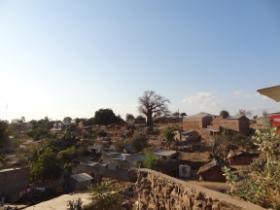Energizing Critical Human Geography at York: Seminar
Tuesday 22 September 2015, 4.00PM to 6.00pm
Speaker(s): Joshua Kirshner and Karen Parkhill
The Research Centre for the Social Sciences is very pleased to host a seminar introducing the Environment Department recently appointed Human Geographers, Joshua Kirshner and Karen Parkhill. Their presentations will be followed by a reception giving everyone an opportunity to network whilst enjoying a glass of wine/juice and some nibbles.
Seminar Schedule
4.00-4.30 - Rapid urbanisation, energy transitions and south-south development in Africa, with an emphasis on Mozambique, Joshua Kirshner
4.35-5.05 - Investigating public and stakeholder perceptions of low carbon energy transitions and socio-technical risk issues, Karen Parkhill
5.05-5.30 - Questions and Discussion
5.30-6.00 - Drinks and networking
Joshua Kirshner is a lecturer in human geography at the University of York. Previously he was lead researcher in Mozambique for an ESRC-funded project on the Rising Powers and Low Carbon Transitions in Southern Africa. He has also worked as lecturer in urban geography for several years at Rhodes University in South Africa. Kirshner holds a BA from Harvard, an MA in Urban Planning from UCLA, and a PhD in City and Regional Planning from Cornell University in the USA. His current research interests include resource peripheries, rapid urbanisation, migration and energy transitions in Africa. He is also interested in growing ties between India and Mozambique. Kirshner has carried out research and written on Bolivia, Brazil, South Africa, Mozambique and the USA.
Karen Parkhill is a lecturer in human geography in the Environment Department at the University of York. Previous to this she was a lecturer at Bangor University and senior research fellow with the Understanding Risk Research Group at Cardiff University. Karen is Chair of the Energy Geographies Research Group (RGS-IBG). Karen currently holds an EPSRC grant entitled 'Welfare, Employment and Energy Demand: Examining Tensions and Opportunities in the Delivery of Demand Reduction', In short, her work seeks to understand how publics and other stakeholders conceptualise risks and benefits related to transitioning to a low carbon society and the reasons underpinning the imperatives for transitioning (e.g. climate change mitigation). The interaction of place, space and context underpins and flows throughout all of these interests.
The event is free and everyone is welcome. Admission is by free ticket only, tickets are available at Eventbrite.
Location: Training Room, Research Centre for Social Sciences, University of York

